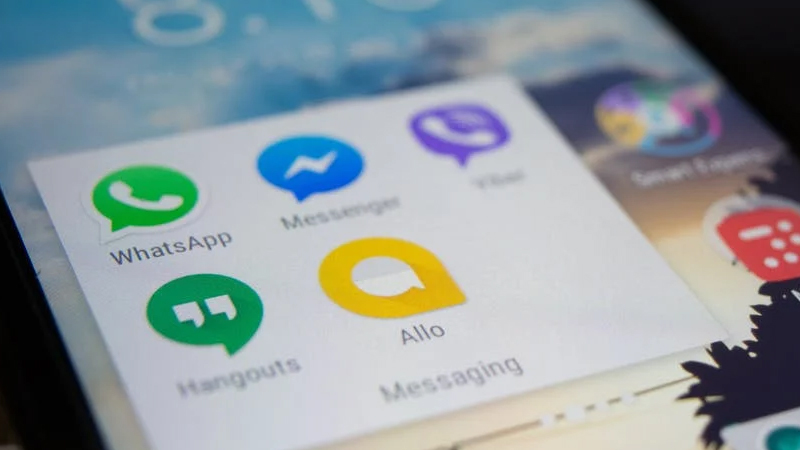What mobile apps are the most demanding on our smartphones these days?

As our smartphones continue to play an increasingly significant role in our daily lives, the importance of understanding which mobile apps are the most demanding on our devices cannot be overstated. With millions of apps available for download, it’s easy to overlook the impact they can have on our smartphones’ performance and battery life. In this article, we’ll explore the most demanding mobile apps and discuss how this knowledge can help us optimize our devices and extend their lifespan.
Factors that Make Mobile Apps Demanding
Mobile apps can be demanding on our smartphones due to their complex coding, resource-intensive features, and constant updates. This can lead to slow performance, lagging, and even crashes.
There are several factors that contribute to a mobile app’s demand on a device, such as the use of graphics, background activities, and network connectivity. Apps that require constant access to the internet or use a lot of background activities, like location tracking or push notifications, tend to be more demanding on a smartphone.
To identify the most demanding apps on your smartphone, you can use built-in tools such as the battery usage tracker or performance monitor. These tools provide insights into which apps are consuming the most battery or using the most processing power. You can also manually check the app settings to see if any features can be turned off to reduce demand.
The Most Demanding Mobile Apps
Social media apps, such as Facebook, Instagram, and Twitter, are known to be among the most demanding mobile apps. These apps require constant data usage and may have background processes that can drain the battery and slow down the phone. Uploading and downloading images, videos, and other media content also add to the app’s demand on the phone’s resources.
Gaming apps are among the most demanding mobile apps due to their graphics-intensive nature. These apps require high-performance processors and graphics processing units (GPUs) to render high-quality graphics and provide smooth gameplay. Additionally, many gaming apps require an internet connection, which can further increase their demand on the device.
For those who enjoy gambling on their mobile devices, casino apps that pay real money are an attractive option. These apps offer the convenience of playing your favorite games from anywhere, as long as you have an internet connection. While gambling apps may be convenient to some people, they can be highly demanding on smartphones. While they may be demanding on your device, the benefits of using these apps make it worth it for many avid players.
Streaming apps such as Netflix and YouTube are also demanding on smartphones, especially when streaming high-quality content. These apps require a lot of data and processing power to stream high-quality video and audio smoothly. Additionally, streaming apps may have background processes that run constantly, which can further drain the battery and slow down the phone.
Communication apps, such as WhatsApp, Messenger, and Skype, are also among the most demanding mobile apps. These apps require a constant internet connection and may have background processes that run continuously to provide notifications and other services. Additionally, communication apps may require a lot of data usage, especially when sending and receiving media content such as images and videos.
The Impact of Demanding Apps on Smartphone Performance
There are a lot of reasons why your battery may be draining energy, one of them is demanding apps, which can have a significant impact on battery life. Many apps require a lot of power to run, and this can drain a smartphone’s battery quickly. This is particularly true for apps that use features like location services or push notifications, which constantly run in the background and use up battery power even when the app is not actively in use.
Demanding apps can also take up a lot of storage space on a smartphone. Many apps require users to download large amounts of data, such as high-quality graphics or video content. This can quickly eat up available storage space on a device, which can cause issues like slow performance or prevent users from being able to install new apps or updates.
Another impact of demanding apps is on processing power. Many apps require a lot of computing power to run, which can put a strain on a smartphone’s processor. This can cause apps to run slowly or crash, or even cause the entire device to freeze or shut down.
Demanding apps can also cause a smartphone to overheat. This is particularly true for apps that require a lot of processing power or that use features like location services or GPS tracking, which can cause the device to work harder than usual. Overheating can cause issues like slow performance, shortened battery life, and even permanent damage to the device in some cases.
Finally, demanding apps can cause slow performance on a smartphone. This can include slow app load times, laggy scrolling or animations, and overall sluggishness when using the device. In some cases, this can make the smartphone difficult or frustrating to use, particularly for tasks like multitasking or running multiple apps at once.
Key Takeaways
Being aware of the most demanding mobile apps on our smartphones is crucial to optimize device performance and prolong its lifespan. Social media apps, gaming apps, gambling apps, streaming apps, and communication apps are among the most demanding mobile apps. These apps can negatively impact our smartphone’s battery life, storage space, processing power, cause overheating, and slow performance.
To improve smartphone performance, it is recommended to limit usage of demanding apps, regularly clear out unused apps, and manage storage space effectively. By taking these steps, we can ensure that our smartphones continue to function at optimal levels and meet our needs.
